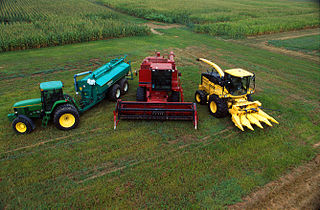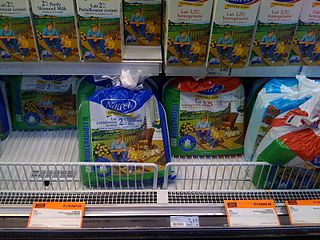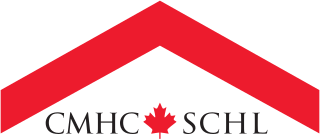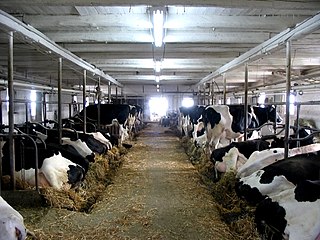Related Research Articles

An agricultural subsidy is a government incentive paid to agribusinesses, agricultural organizations and farms to supplement their income, manage the supply of agricultural commodities, and influence the cost and supply of such commodities.
The Ontario Health Insurance Plan, commonly known by the acronym OHIP, is the government-run health insurance plan for the Canadian province of Ontario. OHIP is funded by a payroll deduction tax by residents who are gainfully employed, by businesses in the province of Ontario, and by transfer payments from the Government of Canada.
Welfare reform is the process of proposing and adopting changes to a welfare system in order to improve the efficiency and administration of government assistance programs with the goal of enhancing equity and fairness for both welfare recipients and taxpayers. Reform programs have various aims: empowering individuals to help them become self-sufficient, ensuring the sustainability and solvency of various welfare programs, and/or promoting equitable distribution of resources. Welfare reform is constantly debated because of the varying opinions on a government's need to balance the imperatives of guaranteeing welfare benefits and promoting self-sufficiency.
The harmonized sales tax (HST) is a consumption tax in Canada. It is used in provinces where both the federal goods and services tax (GST) and the regional provincial sales tax (PST) have been combined into a single value-added tax.
The Canada Revenue Agency is the revenue service of the Canadian federal government, and most provincial and territorial governments. The CRA collects taxes, administers tax law and policy, and delivers benefit programs and tax credits. Legislation administered by the CRA includes the Income Tax Act, parts of the Excise Tax Act, and parts of laws relating to the Canada Pension Plan, employment insurance (EI), tariffs and duties. The agency also oversees the registration of charities in Canada, and enforces much of the country's tax laws.

Eugene Francis "Gene" Whelan was a Canadian politician, sitting in the House of Commons from 1962 to 1984, and in the Senate from 1996 to 1999. He was also Minister of Agriculture under Pierre Trudeau from 1972 to 1984, and became one of Canada's best-known politicians. During his career, he would meet Queen Elizabeth II, help Canada beat U.S. president Richard Nixon to the punch in "opening up" China, and play a catalyzing role in the fall of the Iron Curtain and the end of the Cold War. In an editorial immediately following his death, the Windsor Star said:
The Canadian Food Inspection Agency is a regulatory agency that is dedicated to the safeguarding of food, plants, and animals (FPA) in Canada, thus enhancing the health and well-being of Canada's people, environment and economy. The agency is responsible to the Minister of Health.
Crop insurance is insurance purchased by agricultural producers and subsidized by a country's government to protect against either the loss of their crops due to natural disasters, such as hail, drought, and floods ("crop-yield insurance", or the loss of revenue due to declines in the prices of agricultural commodities.
Agriculture and Agri-Food Canada is the department of the Government of Canada responsible for the federal regulation of agriculture, including policies governing the production, processing, and marketing of all farm, food, and agri-based products. Agriculture in Canada is a shared jurisdiction and the department works with the provinces and territories in the development and delivery of policies and programs.

The Canadian Dairy Commission (CDC) is an Ottawa-based Government of Canada Crown Corporation that provides a framework for managing Canada's dairy industry.

Canada Mortgage and Housing Corporation is Canada's federal crown corporation responsible for administering the National Housing Act, with the mandate to improve housing by living conditions in the country.

The Ministry of Agriculture, Food and Rural Affairs (OMAFRA) is an Ontario government ministry responsible for the food, agriculture and rural sectors of the Canadian province of Ontario. The Minister is currently Lisa Thompson.
Service Canada is the program operated by Employment and Social Development Canada to serve as a single-point of access for the Government of Canada's largest and most heavily used programs, such as the social insurance number, the Employment Insurance program, the Old Age Security program and the Canada Pension Plan. Service Canada centres also accept applications for Canadian passports.

Canada is one of the largest agricultural producers and exporters in the world. As with other developed nations, the proportion of the population agriculture employed and agricultural GDP as a percentage of the national GDP fell dramatically over the 20th century, but it remains an important element of the Canadian economy. A wide range of agriculture is practised in Canada, from sprawling wheat fields of the prairies to summer produce of the Okanagan valley. In the federal government, overview of Canadian agriculture is the responsibility of the Department of Agriculture and Agri-Food.

The Under Secretary of Agriculture for Farm and Foreign Agricultural Services was the third-ranking official in the United States Department of Agriculture prior to reorganization of several mission areas, announced on May 11, 2017. The mission area of USDA's purpose was to "help to keep America's farmers and ranchers in business as they face the uncertainties of weather and markets..." and that "...deliver[s] commodity, credit, conservation, disaster, and emergency assistance programs that help improve the stability and strength of the agricultural economy." The Under Secretary was traditionally appointed to serve as the President of the Commodity Credit Corporation.

The Canadian Agricultural Safety Association was established in 1993 in response to an identified need for a national farm safety networking and coordinating agency to address problems of illness, injuries and accidental death in farmers, their families and agricultural workers. Since then, CASA has worked to improve the health and safety conditions of those who live and work on Canadian farms.
Crown corporations in Canada are government organizations with a mixture of commercial and public-policy objectives. They are directly and wholly owned by the Crown.
The agricultural policy of the United States is composed primarily of the periodically renewed federal U.S. farm bills. The Farm Bills have a rich history which initially sought to provide income and price support to US farmers and prevent them from adverse global as well as local supply and demand shocks. This implied an elaborate subsidy program which supports domestic production by either direct payments or through price support measures. The former incentivizes farmers to grow certain crops which are eligible for such payments through environmentally conscientious practices of farming. The latter protects farmers from vagaries of price fluctuations by ensuring a minimum price and fulfilling their shortfalls in revenue upon a fall in price. Lately, there are other measures through which the government encourages crop insurance and pays part of the premium for such insurance against various unanticipated outcomes in agriculture.

Canada's supply management, abbreviated SM, is a national agricultural policy framework used across the country, which controls the supply of dairy, poultry and eggs through production and import controls and pricing mechanisms. The supply management system was authorized by the 1972 Farm Products Agencies Act, which established the two national agencies that oversee the system. The Agriculture and Agri-Food Canada federal department is responsible for both the Canadian Dairy Commission and its analogue for eggs, chicken and turkey products, the Farm Products Council of Canada. Five national supply management organizations, the SM-5 Organizations — Egg Farmers of Canada (EFC), Turkey Farmers of Canada (TFC), Chicken Farmers of Canada (CFC), the Canadian Hatching Egg Producers (CHEP) and the Ottawa-based Canadian Dairy Commission (CDC), a Crown corporation — in collaboration with provincial and national governing agencies, organizations and committees, administer the supply management system.
An Administrative Monetary Penalty is a civil penalty imposed by a regulator for a contravention of an Act, regulation or by-law. It is issued upon discovery of an unlawful event, and is due and payable subject only to any rights of review that may be available under the AMP's implementing scheme. It is regulatory in nature, rather than criminal, and is intended to secure compliance with a regulatory scheme, and it can be employed with the use of other administrative sanctions, such as demerit points and license suspensions.
References
- ↑ Public Appointments Secretariat, "Agency Details"
- ↑ E-Laws Ontario, "AgriCorp Act, 1996"
- ↑ Agriculture and Agri-Food Canada, "Agricultural Policy Framework"
- ↑ Ontario Ministry of Agriculture, Food and Rural Affairs (OMAFRA), "July 26, 2004 news release"
- ↑ Agriculture and Agri-Food Canada, "Growing Forward: Agricultural Policy Framework"
- ↑ Agriculture and Agri-Food Canada, "Growing Forward 2"
